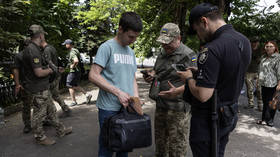EU gas crisis may worsen next year – IEA

The energy crisis in the EU may last through 2024, the International Energy Agency (IEA) said on Thursday in its new report on the future of the energy market.
According to the document, the agency expects gas shortages in winter 2023-2024 because European countries may not be able to refill storage facilities during the summer months.
The IEA explains that replenishing stocks this year “benefitted from key factors that may well not be repeated in 2023,” including Russian pipeline gas deliveries which were close to former levels for much of the first half of the year despite having since dwindled due to sanctions and technical difficulties.
The region also benefitted from China’s lower liquefied natural gas (LNG) imports in the first ten months of 2022, which freed up LNG on the world market and allowed the EU to compensate for the drop in Russian gas deliveries with increased LNG purchases.
“In the event of a full cessation of Russian pipeline gas supplies to the EU and a recovery of Chinese LNG imports to 2021 levels, the new IEA analysis shows that Europe could face a challenging supply-demand gap of 30 billion cubic meters during the key period for refilling gas storage in the summer of 2023. This gap could represent almost half the gas required to fill storage sites to 95% capacity by the start of the 2023-24 heating season,” the report says.
IEA head Fatih Birol said next winter may prove to be much harsher than the upcoming one.
“When we look at the latest trends and likely developments in global and European gas markets, we see that Europe is set to face an even sterner challenge next winter,” he warned.
He suggested that in order to keep the crisis from worsening, European governments should step up work to “structurally reduce gas demand” across the region.
For more stories on economy & finance visit RT's business section











